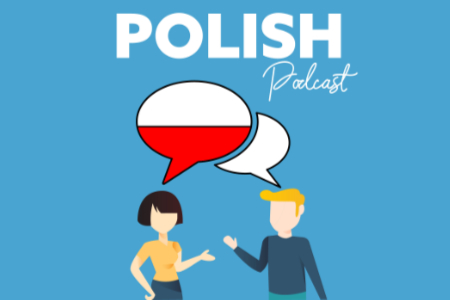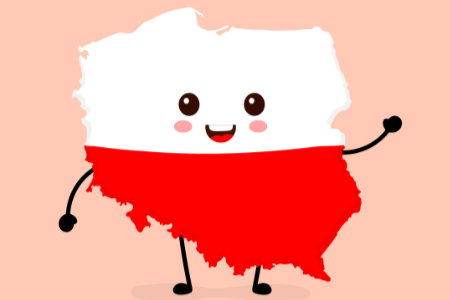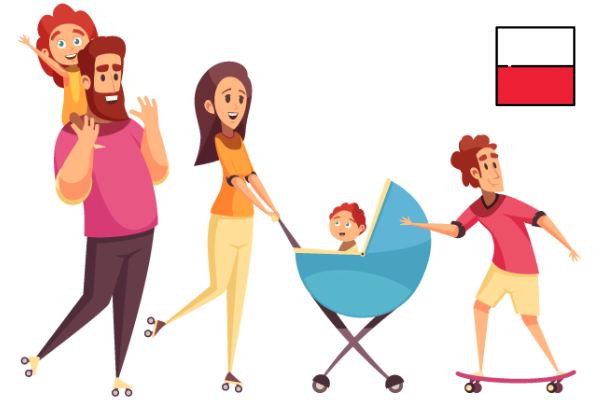Learn Polish
Want to learn Polish online? You’ve come to the right place! Learning Polish has never been easier (and more fun!) than it is with Repeto’s simple language-learning program.
Here are some of our top Polish language courses. Each course targets a specific aspect of language acquisition, so you can rest assured that you have all you need to learn the Polish language in one easy place.
To start learning, simply choose one of the courses and then click on each individual lesson.
Polish language courses

Intermediate B2 level
Polish Podcast

Beginner A2 level
Polish vocabulary

Beginner A1 level
Polish for beginners

Beginner A1 level
Polish short stories for beginners

Beginner A2 level
Polish short stories for beginners A2

Advanced C1 level
Chasing Shadows: A Crime Language Course in Polish

Intermediate B2 level
Polish songs to learn Polish

Intermediate B1 level
Rodzina Kowalskich
Learn Polish with Repeto!
Looking to learn Polish? Repeto provides effective and interactive language courses that are tailored to your individual needs and goals. Learning Polish is a valuable skill that can open up new opportunities for work, travel, and connecting with Polish culture.
Learning Polish may seem daunting, but it's no different from learning any other foreign language. To be successful in learning any language, all you need is time and dedication—and Repeto, of course! By spending just a little time each day studying Polish, you’ll start seeing improvements in your reading, listening, writing and speaking in no time.
Our courses are designed to help you achieve fluency in Polish in a fun and engaging way. Our experienced teachers are passionate about teaching and will provide you with the tools and support you need to succeed. By learning Polish with us, you'll gain the skills and confidence to communicate with Polish speakers all around the world and deepen your understanding of the language and culture.
Why to learn Polish?
There are many benefits to learning Polish. For one, it's a Slavic language that's closely related to Czech, Slovak, and Ukrainian, making it an excellent foundation for learning other Slavic languages.
Polish is also the second most spoken language in England, making it a valuable skill for anyone looking to work or study in the UK.
But learning Polish is about more than just practical benefits. By learning the language, you'll also gain a deeper understanding and appreciation of Polish culture. From the rich history and literature to the delicious food, Poland has a lot to offer.
By speaking the language, you'll be able to connect with Polish speakers on a deeper level and fully immerse yourself in this fascinating culture and appreciate its nuances and subtleties.
So if you're ready to learn Polish online, we're here to help. Our platform provides a flexible and convenient way to learn the language, whether you're a beginner or advanced learner. With our interactive and effective methods, you'll be speaking Polish with confidence in no time. Sign up now to start your language learning journey!
 31
31